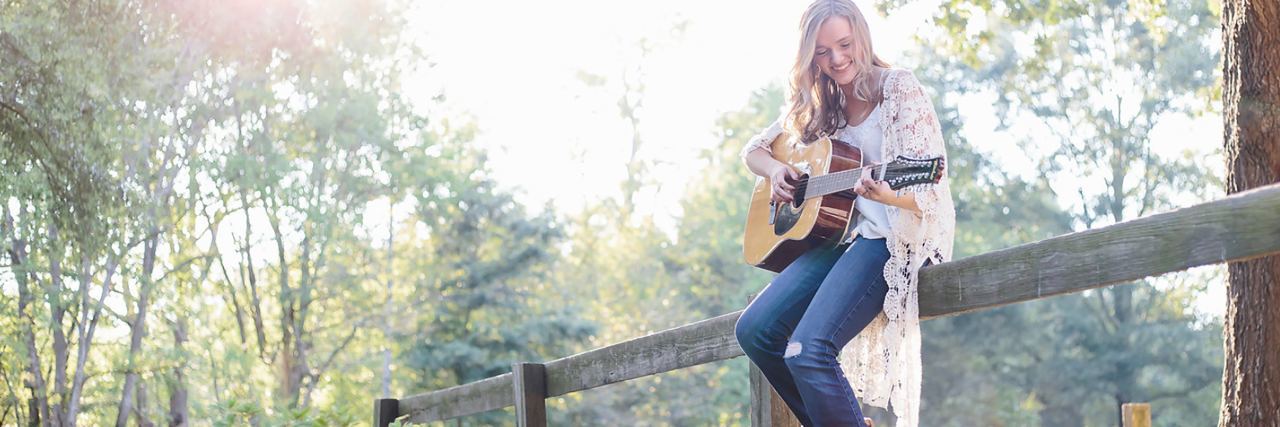Even during my worst times, music comforted me.
I remember the first time I played guitar. I was in the second or third grade when my father asked for, and received, a guitar for Christmas. He strummed the guitar a couple of times on Christmas Day, but work kept him so busy he never learned to play. After the guitar spent a few months collecting dust, my mom picked it up and began teaching herself chords.
When 9-year-old me saw my mother playing the guitar, I knew I had to learn. My mom has always been my role model, and all her interests quickly became mine. My mom began teaching me chords on a toy guitar we had, but after she realized I had more than a passing infatuation with the instrument, she helped me buy my own guitar and start professional lessons.
As I got older and my mental and physical health worsened, I didn’t always have the energy to play guitar. I still spent hours each day listening to music, because I wanted to be surrounded by melodies even if I couldn’t play them. Music gave me something to look forward to. I dreaded getting ready for school; my morning routine exhausted me, and I felt drained before I even left the house. I convinced myself to leave my bed because I knew I could listen to Taylor Swift’s “Red” as I got ready.
Music motivated me, but it also gave me hope. When I didn’t want to live anymore, artists like Twenty One Pilots reminded me I wasn’t alone. Music provided me with solace. When one medication caused brain fog so severe I couldn’t understand others’ speech, I listened to music with heavy guitar influences. The sounds felt like home when my own mind and body became foreign places. Music provided me with purpose. When I resumed playing guitar after regaining some strength, I effortlessly played the songs I’d learned years ago. If I tried to read a textbook, I spent hours rereading the same page. Yet, without having to think about it, my hands flew to different chords and remembered old strum patterns. When I struggled to feel worthy because I couldn’t accomplish basic tasks, my ability to play an instrument helped me feel meaningful.
Music helped me cope with a 14-week hospitalization when I was 16. I clung to the comfort and joy my favorite songs provided when everything around me felt inescapably dark. I developed post-traumatic stress disorder (PTSD) from my hospitalization, so even once I’d survived the worst three months of my life, I felt trapped within them. I turned to Ben Howard’s songs, which heavily feature guitar. When the world felt scary, Howard’s songs helped me feel safe. I kept headphones on me at all times, and I listened to a song called “Conrad” to get through each panic attack.
I hated nighttime. During the silent time between getting in bed and falling asleep, my brain replayed the memories I strove to forget. I was terrified to fall asleep because I was afraid I would dream I was back in the hospital. I was only able to drift off if I kept the song on a loop all night.
It’s difficult to believe I’m approaching the 10-year anniversary of when I first learned to play guitar. I’m immensely thankful a desire to be more like my mom led to one of the greatest blessings in my life. Music has saved me time and time again over the past decade. While I don’t know what the next decade holds, it’s comforting to know music will remain a constant in my life.
Photo by Jim Jacob on Unsplash

